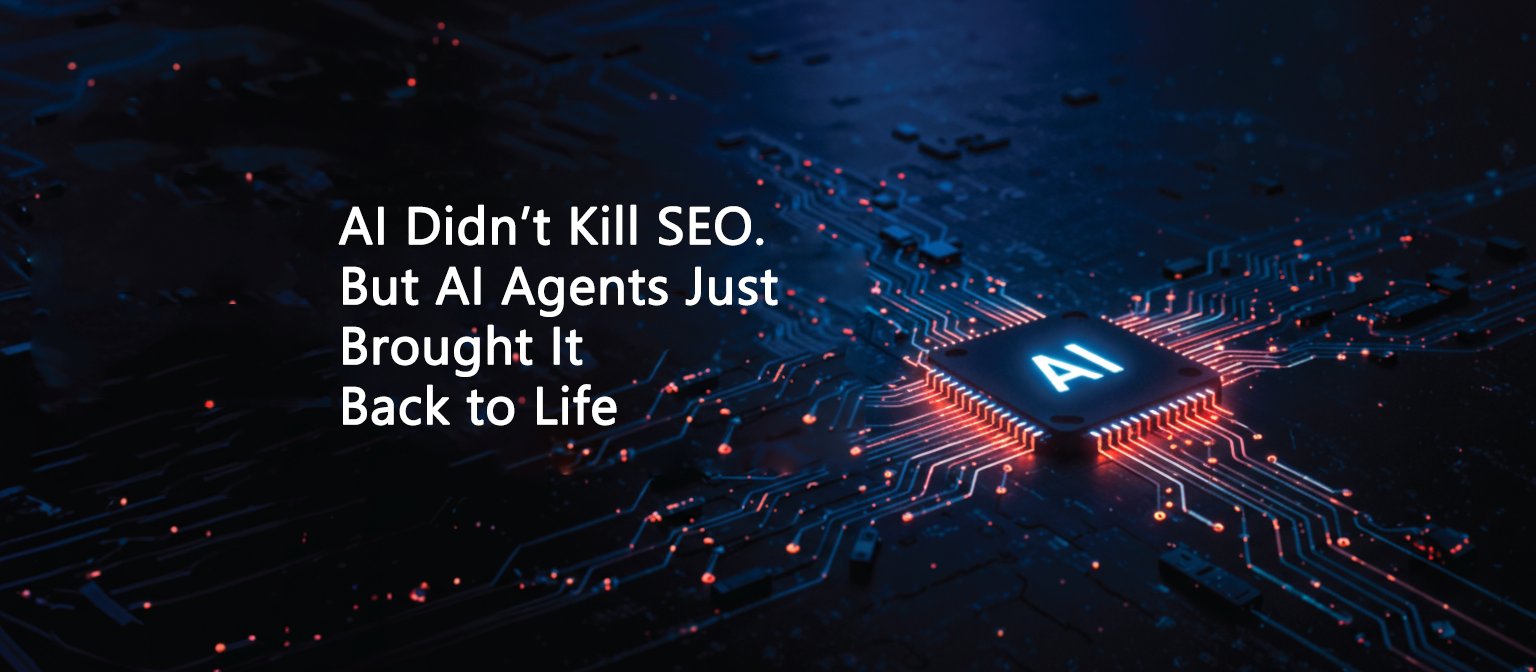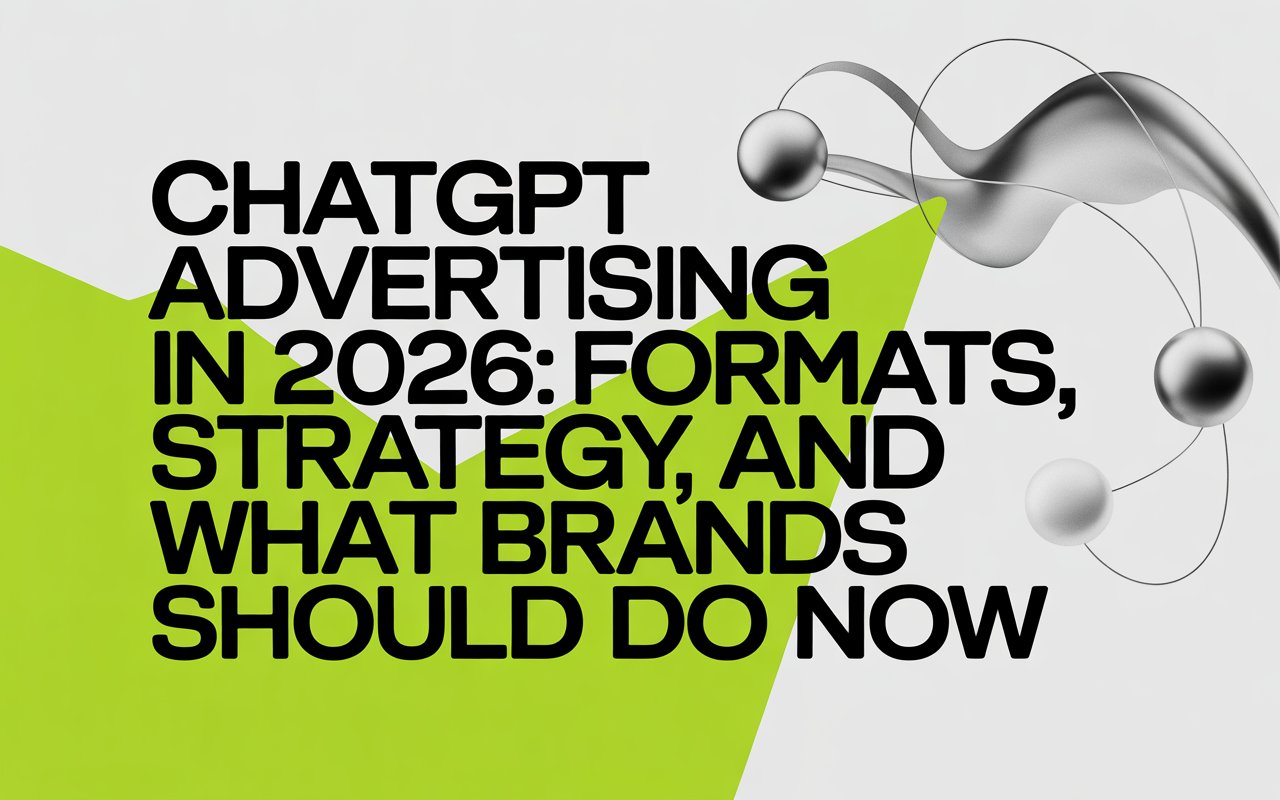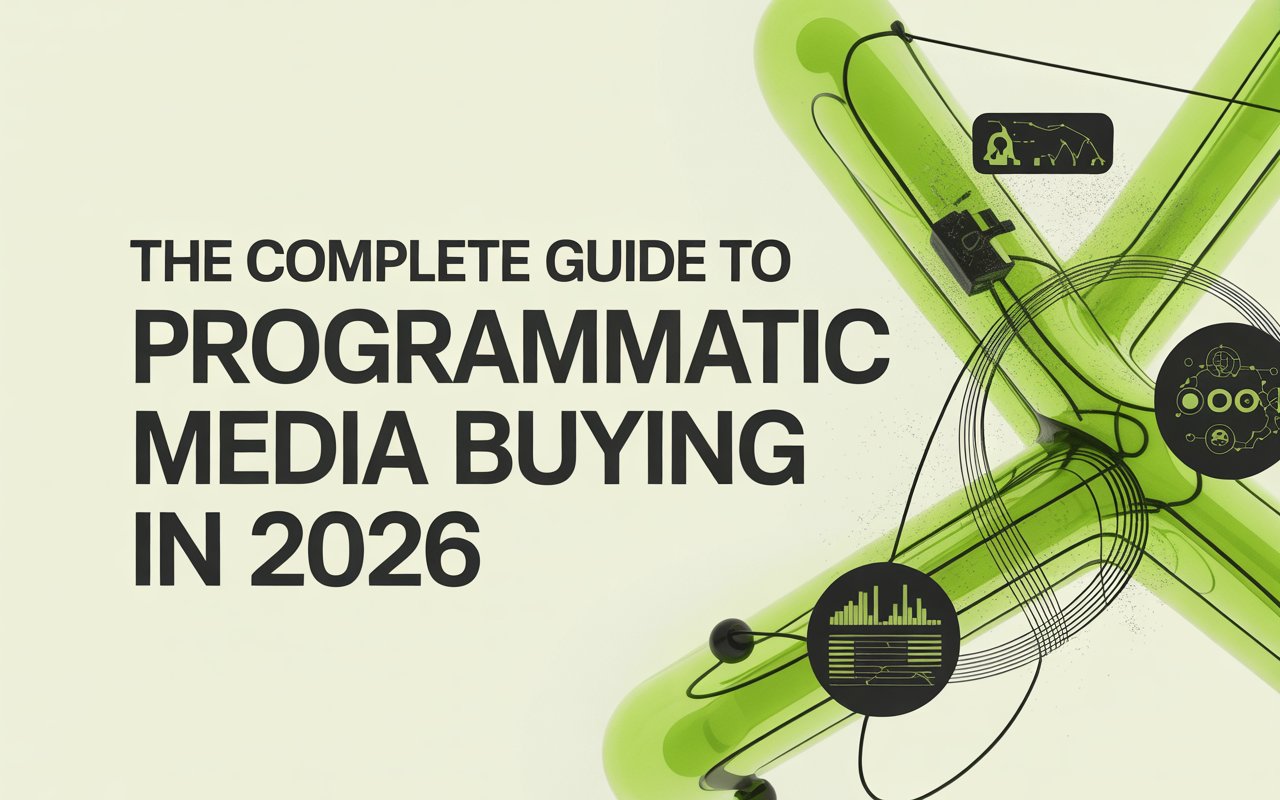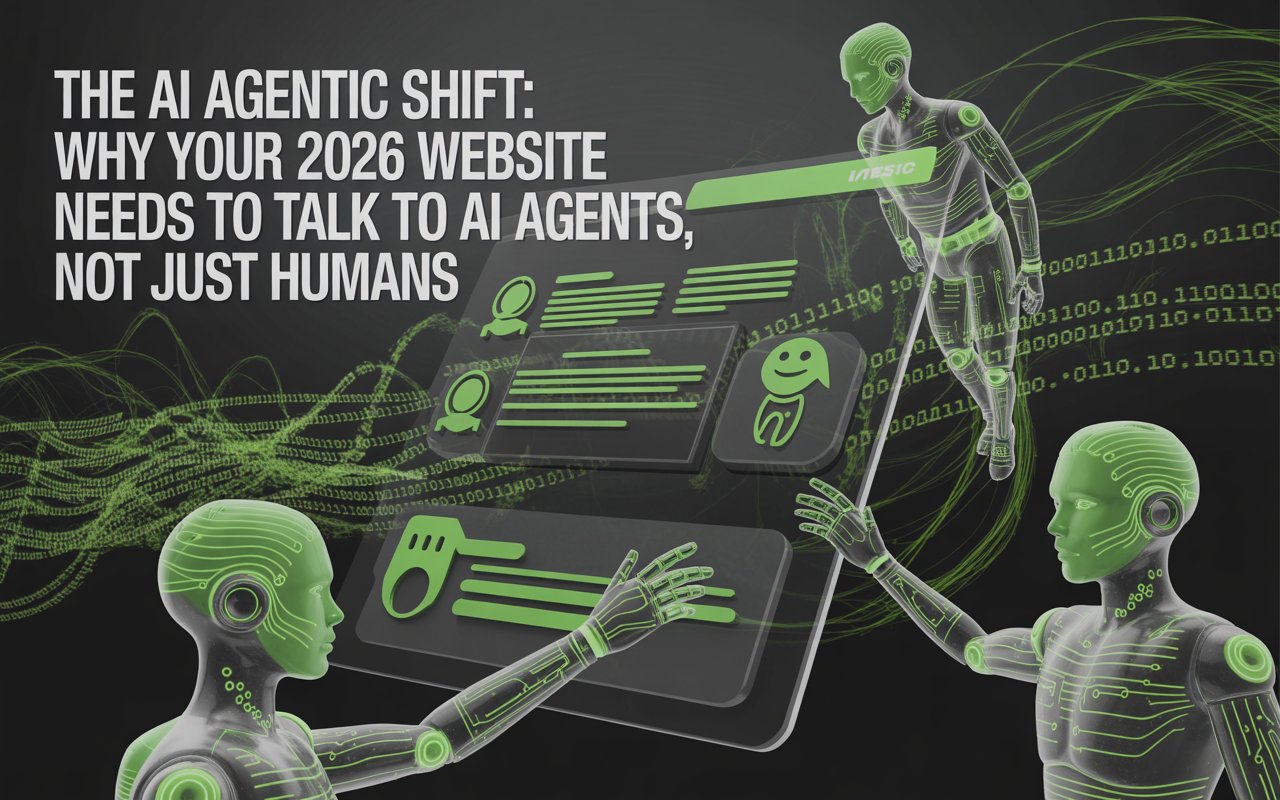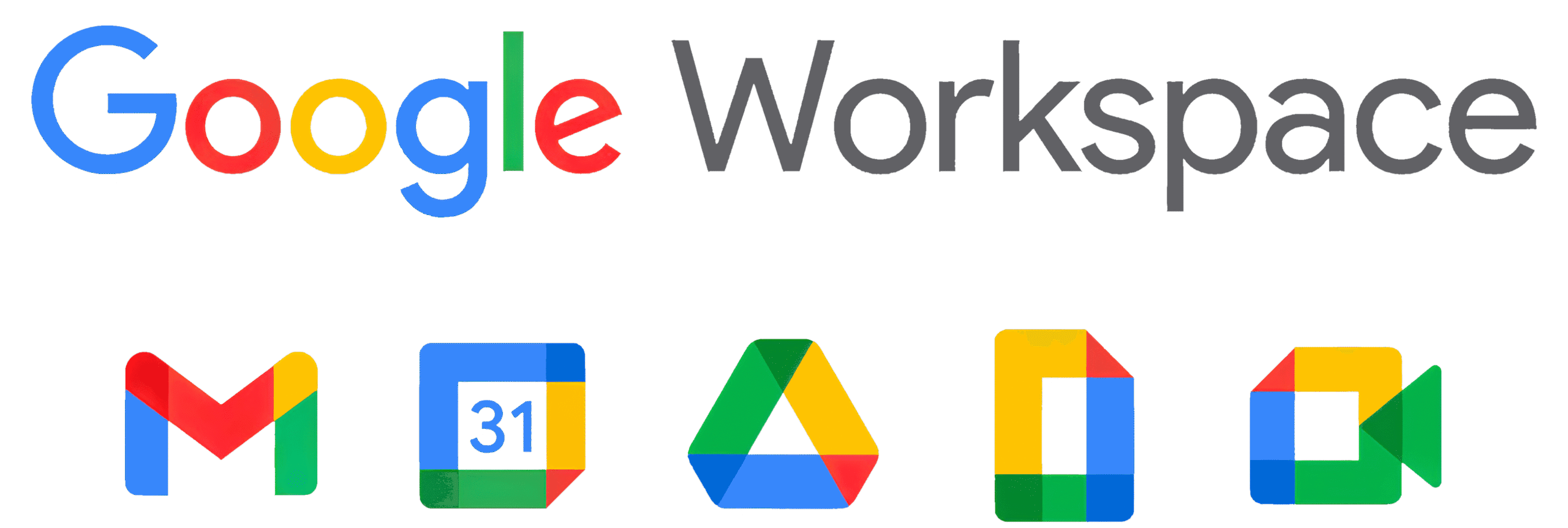For years, digital marketers debated whether AI would kill SEO. With ChatGPT, Gemini, and other generative AI tools rewriting how people search, many businesses feared that SEO was on its last legs.
But here’s the twist: AI didn’t kill SEO. In fact, AI Agents just brought it back to life.
Far from making search irrelevant, AI is reshaping SEO into something smarter, more dynamic, and more aligned with user intent than ever before. Let’s decode why.
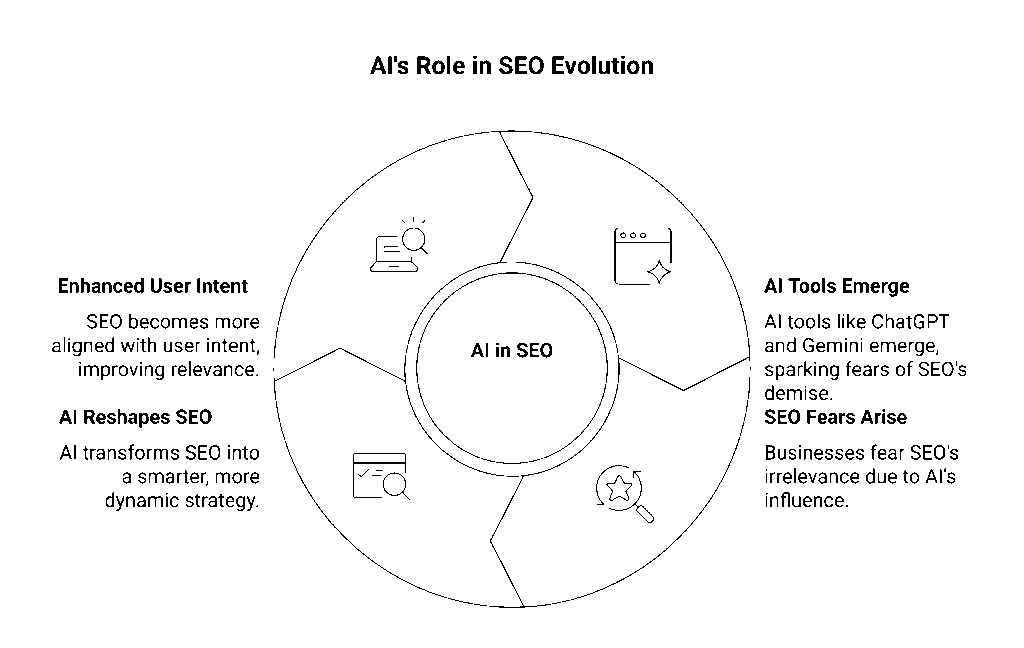
Did AI Really Kill SEO in 2023–2024?
When ChatGPT and Gemini exploded, Google traffic dipped for many sites. People began asking AI tools questions instead of searching on Google. Predictions about the “death of SEO” became mainstream.
- Ahrefs 2024 survey: 37% of marketers reported traffic decline after AI answers appeared in SERPs.
- SparkToro 2024 data: Zero-click searches (where users don’t click any website) rose to 65%, partly due to AI-powered summaries.
This led to panic: if AI could directly give answers, why would users visit websites at all?
But that’s only half the story.
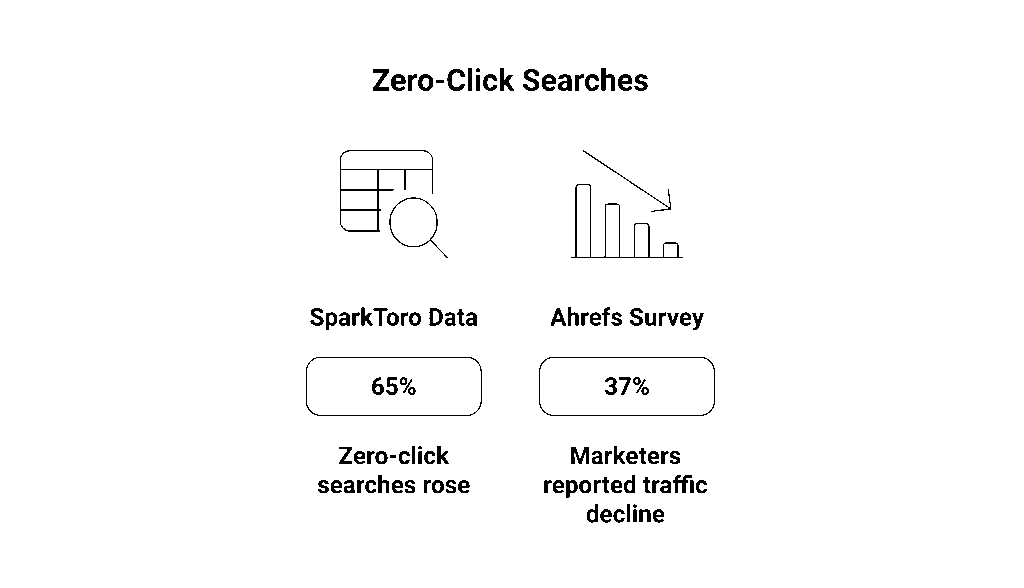
What Are AI Agents & Why Do They Matter for SEO?
AI agents are not just chatbots. They are autonomous systems that:
- Understand intent.
- Collect information from multiple sources.
- Execute tasks (like booking tickets or comparing prices).
- Deliver results in context.
Think of Perplexity AI, Gemini Advanced, or ChatGPT with browsing — they don’t just answer, they guide, recommend, and transact.
For SEO, this means your website isn’t competing for just blue links anymore. It’s competing for AI agent visibility and integration.
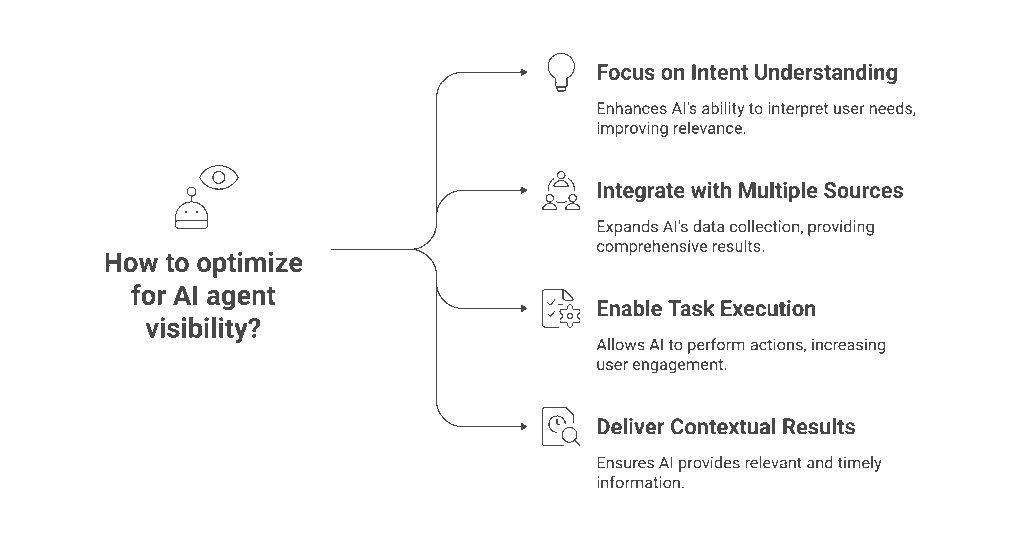
How AI Agents Changed the Search Game
Before AI agents:
- Keywords and backlinks drove rankings.
- Google dominated 90%+ of search traffic.
After AI agents:
- Queries are conversational, long-tail, and task-driven.
- Agents prefer structured, authoritative, and intent-rich content.
- Users don’t just want answers — they want personalized recommendations and actions.
In short: SEO has shifted from ranking for keywords → optimizing for AI comprehension and recommendation.
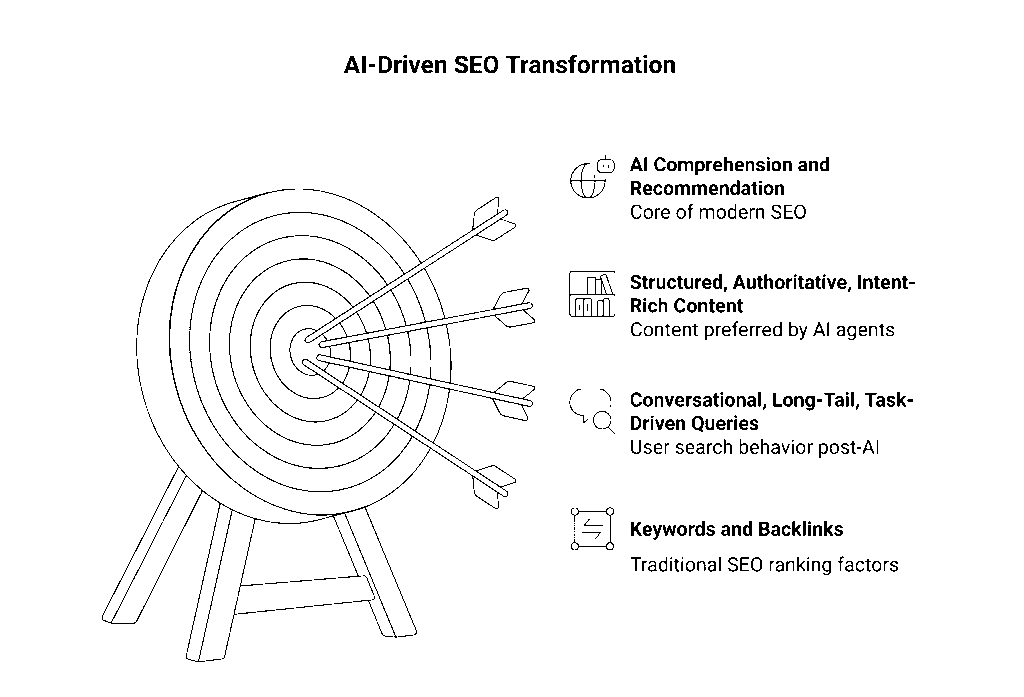
Why SEO Is More Alive Than Ever in 2025
Far from killing SEO, AI forced an evolution. Let’s look at the data:
- BrightEdge 2025 report: 87% of marketers say AI-driven search has increased the need for high-quality, intent-driven SEO content.
- HubSpot 2025: Websites optimized for AI search saw 42% higher engagement than those relying only on traditional SEO.
- Google SGE (Search Generative Experience) test results: Businesses appearing in AI snapshots saw 3x CTR (click-through rate) compared to standard organic listings.
Instead of making SEO obsolete, AI raised the bar.
What Kind of Content Do AI Agents Prefer?
If you want AI agents like ChatGPT, Gemini, or Perplexity to surface your brand, you need to speak their language. Here’s what matters:
- Structured Data & Schema Markup
- Helps AI parse context.
- Example: FAQ schema increases chances of being pulled into AI answers.
- Authoritative, Well-Cited Sources
- AI favors brands backed by data, stats, and credibility.
- Thin, keyword-stuffed content won’t survive.
- Conversational & Contextual Writing
- Queries are no longer “best shoes Delhi.”
- They’re now “Which running shoes are best for flat feet under ₹5,000 in Delhi?”
- Fresh, Updated Content
- AI agents love recency. Outdated content gets skipped.
- Multimodal Content (Text + Video + Images)
- Gemini and Perplexity prefer brands with multiple formats for richer responses.
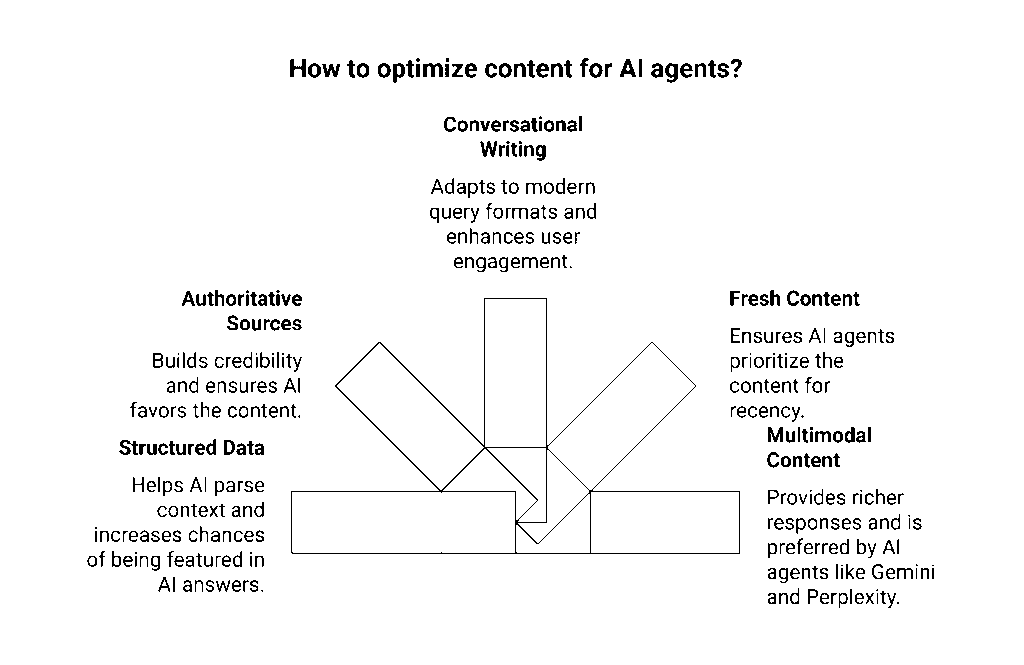
SEO in the Age of AI: Old Rules vs. New Rules
| Old SEO Rules (2010–2022) | New SEO Rules (2025 & Beyond) |
|---|---|
| Keywords = Rankings | Intent + Context = Visibility |
| Backlinks = Authority | Citations + Trust Signals = Authority |
| Blog spam = Volume traffic | Data-driven insights = Agent pickup |
| Google = Only search channel | AI agents + multimodal search matter |
| Mobile-friendly = Bonus | AI-friendly = Mandatory |
AI didn’t erase the fundamentals — it elevated them.
How AI Agents Boosted the Value of Long-Tail Keywords
With voice + conversational AI searches booming, long-tail keywords are hotter than ever:
- Semrush 2025 data: Long-tail queries account for 71% of AI-powered search inputs.
- Example: Instead of searching “SEO agency India,” users ask:
“Which is the best SEO agency in India for SMEs that also offers website design?”
Businesses optimized for natural, long-tail phrasing are thriving in this new landscape.
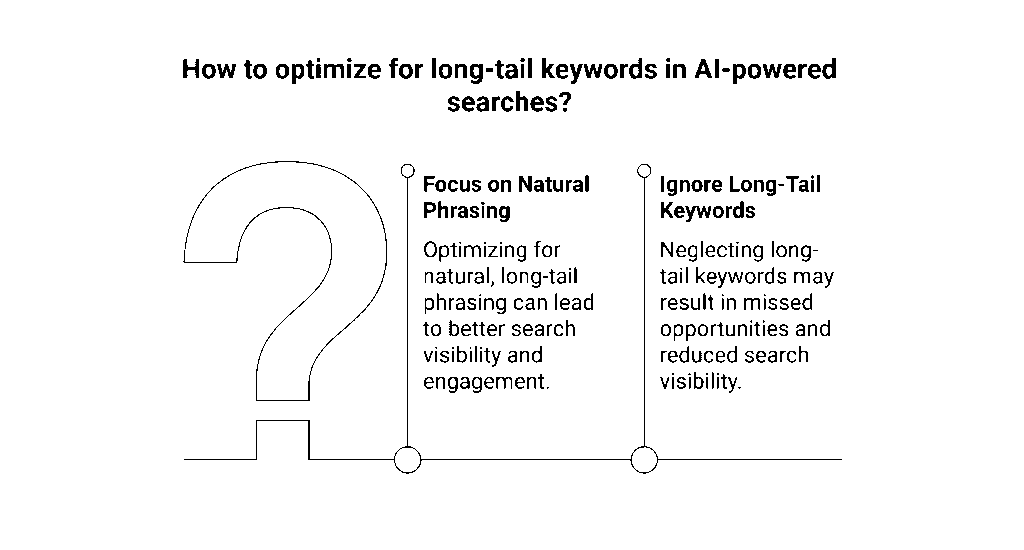
Is Link Building Dead in the AI Era?
Not dead — but transformed.
AI agents don’t just crawl links; they validate source credibility.
- Backlinks from spammy sites? Ignored.
- Mentions from trusted domains? Boosted.
A 2025 Moz study showed that brand mentions and topical authority weigh more than sheer backlink numbers for AI visibility.
So, it’s not link quantity, it’s link quality + context.
Can AI Agents Replace Google for Businesses?
Not fully — yet.
- Google still controls 81% of global search traffic (Statista 2025).
- But tools like Perplexity AI grew 600% YoY in daily users (Q2 2025, SimilarWeb).
- Gen Z users spend more time asking AI tools than Googling basic queries.
This means businesses can’t ignore Google or AI agents. Winning brands are optimizing for both ecosystems.
What Does AI-Optimized SEO Look Like in Practice?
Here’s a roadmap businesses should follow:
- AI-Readable Website
- Structured data, schema, clear navigation.
- Conversational Content
- Answer user questions the way they’d ask in real life.
- Data-Backed Authority
- Cite reports, surveys, and provide original data.
- Content Updating Cycle
- Refresh pages every 3–6 months.
- Multichannel Presence
- Get cited across blogs, LinkedIn, YouTube — AI agents pull from everywhere.
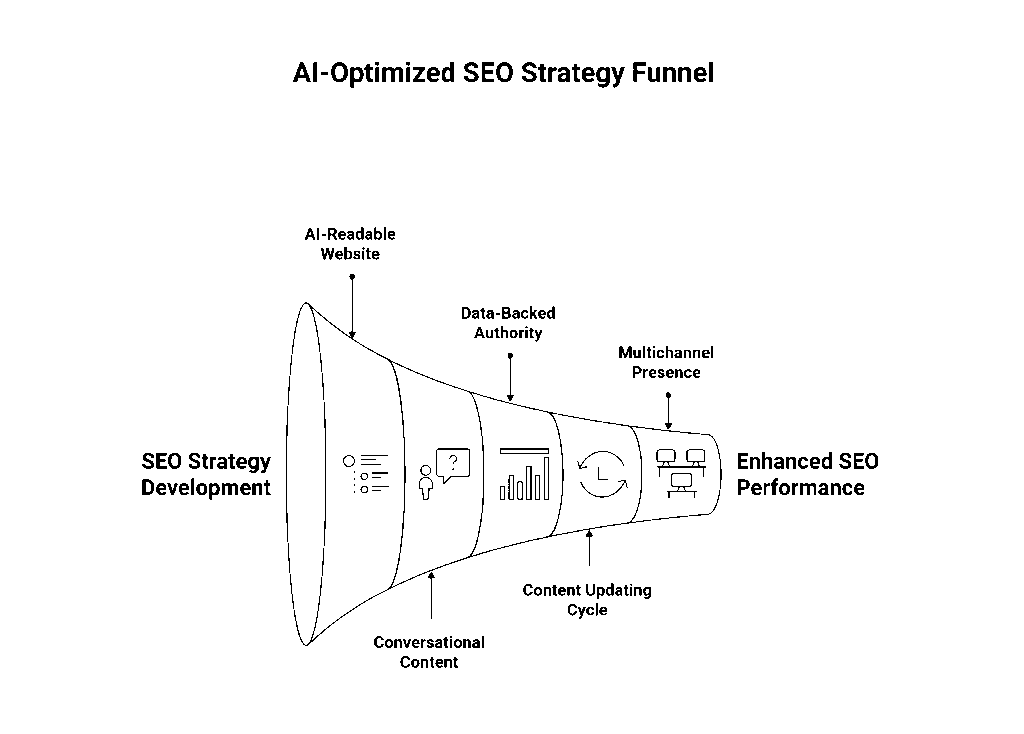
Case Study: How SMEs Are Thriving with AI SEO
- A retail SME in Delhi updated its website with conversational FAQs and schema markup in late 2024.
- Within 6 months, they saw:
- +212% increase in AI-driven traffic (Gemini + Perplexity citations)
- +65% organic sales growth
- 3x more leads compared to their paid ads.
This proves AI SEO isn’t theoretical — it’s driving real-world ROI.
Why AI Didn’t Kill SEO — It Killed Bad SEO
Thin content. Keyword stuffing. Spammy backlinks. These tactics are truly dead.
But for businesses that invest in quality, authority, and intent-driven content — AI agents are the biggest opportunity of the decade.
As Rand Fishkin said in 2025:
AI didn’t end SEO. It ended shortcuts.
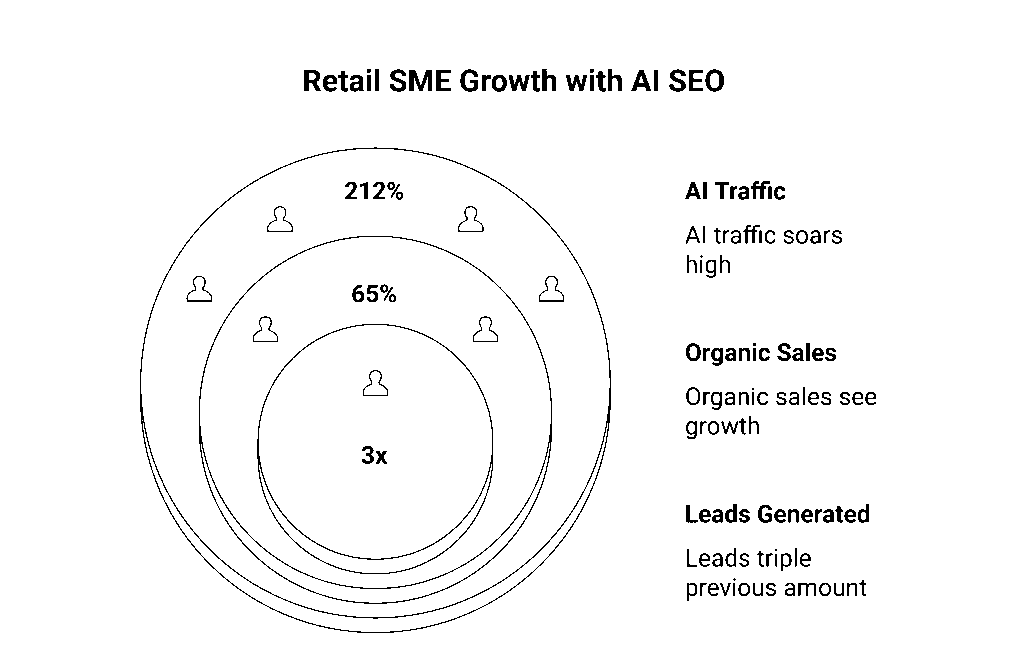
Final Thought: AI Agents Are the New Gatekeepers of Attention
The future of SEO isn’t about gaming algorithms. It’s about being useful, credible, and contextual enough for AI agents to pick you as the best answer.
AI didn’t kill SEO.
AI agents just resurrected it — smarter, stronger, and more human than ever.


